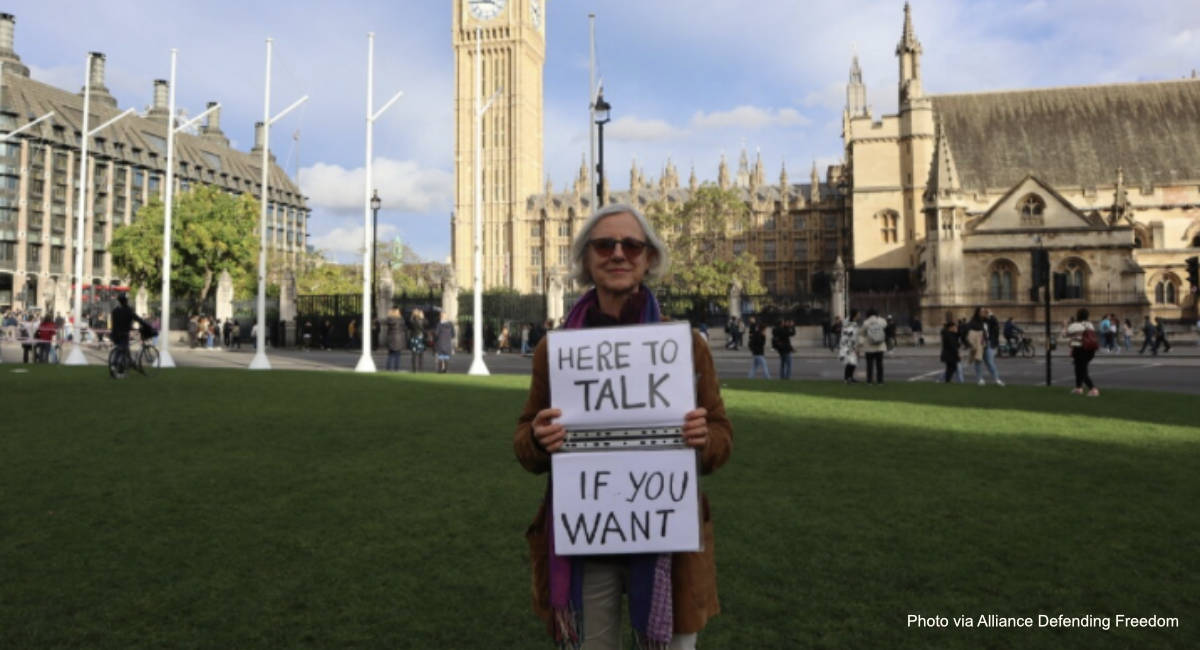A British woman is awaiting trial for holding a sign which offered help to pregnant women outside an abortion facility in Bournemouth, Dorset.
Livia Tossici-Bolt, 62, was arrested for standing within a Public Spaces Protection Order (PSPO), which establishes a “buffer zone” around the abortion business. Her sign simply read, “here to talk, if you want to.” Local authorities issued Tossici-Bolt a Fixed Penalty Notice which she refused to pay, and she was consequently charged by the Bournemouth, Christchurch & Poole Council and is awaiting trial.
“For several years now, I have been offering a helping hand to women who would like to consider other options to abortion, and pointing them to options where they can receive financial and practical support, if that’s what they would like,” explained Tossici-Bolt. “There’s nothing wrong with offering help. There’s nothing wrong with two adults engaging in a consensual conversation on the street. I shouldn’t be treated like a criminal just for this.”
Alliance Defending Freedom UK (ADF) is currently representing Tossici-Bolt. ADF has represented other individuals who have also been arrested for violating the United Kingdom’s restrictive buffer zone laws, which go so far as to ban silent prayer in the streets outside abortion facilities.
READ: UK Army vet decries plan to prosecute him for ‘thoughtcrime’ of silent prayer
“Under vaguely-written local ‘buffer zone’ measures, we have seen volunteers like Livia criminalised simply for offering help to women in need; and others dragged through courts for praying, even silently, in their minds,” said Jeremiah Igunnubole, legal counsel for ADF UK. “The principle of freedom of thought and speech must be defended both within and outside ‘buffer zones.'”
In a separate incident, Tossici-Bolt was harassed by authorities for holding another sign — even though she was outside the established ‘buffer zone.’
“Livia was interrogated for praying and offering charitable help even outside of a buffer zone on one occasion – exposing the reality of the slippery slope of censorship,” Igunnubole said. “If the state is allowed to criminalise the mere holding of prolife viewpoints within certain public spaces, on what basis can we object to criminalisation in all public spaces?”







